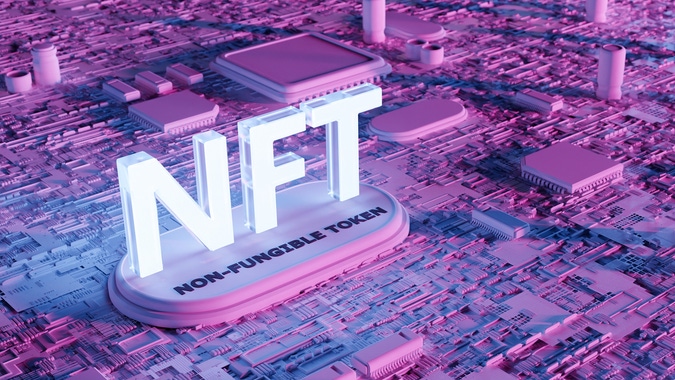The emergence of Europe’s leading NFT hubs points to a continent that is ready for Web3
Opinions expressed by Contractor the contributors are their own.
You are reading Entrepreneur Europe, an international franchise of Entrepreneur Media.
Despite mixed market sentiment towards NFTs around the world, Europe has positioned itself as a continent ready to embrace the new blockchain-based technology and become a global leader in developing successful projects that work through the use of distribution of non-fungible tokens.

AntonioSolano | Getty Images
The appetite for NTFs is perhaps nowhere more pronounced than in Paris, with the French capital hosting the development of the NFT Factory – a technology hub set to showcase the very best of Web3.
Set to open in September 2022, the NFT Factory will host events, art sales, and educational programs focused on tokens, blockchain technology, and the metaverse.
At the heart of the project is a collective of 50 leading figures from the world of technology and crypto, as well as artists, entrepreneurs, consultants and investors. The NFT factory will span a 400 square meter plot in the center of Paris, and will be a hybrid space spanning technology, business and art.
“The NFT factory is a little strange,” explained John Karp, co-founder and president of the NFT factory. “No specialists in this emerging industry have come together to create a project in any other country so far.”
The technology hub has already been busy increasing NFT acceptance in Europe through the introduction of an innovative membership program, where users purchase a non-fungible token to confirm access to the project.
France is no stranger to the NFT world, and in September 2021 Parisian startup Sorare announced a €579.7 million Series B funding round to position the company as one of Europe’s leading unicorns focused on non-fungible tokens.
Sorare uses NFT ownership to create a collectible fantasy football game where users can buy the cards of their favorite football players and put them into a five-man team to win prizes based on each player’s respective real-world performance. Recently, the company expanded into the world of Major League Baseball in a landmark deal.
At this stage, it is worth noting that France is not the only nation pioneering a future built on NFTs and blockchain technology. Thanks to relatively relaxed tax laws for NFT ownership, Austria is quickly developing into a busy hub for non-fungible collectibles.
In early 2022, Austria’s world-renowned Belvedere Gallery sold its own NFTs focusing on the work of Gustav Klimt with the project considered a success among commentators.
Competing with ‘Crypto Winter.’
Despite the growth of NFTs across European nations such as France and Austria among many others, the non-fungible token market has struggled to build on the momentum it built in 2021 as the wider world of cryptocurrencies suffers a slowdown this year.
The emergence of a “crypto winter” due to the cyclical nature of bitcoin’s rally has long been predicted for 2022, and although the long-term outlook for the industry remains somewhat more optimistic, the total market value of NFTs has fallen significantly in recent months.
Crypto winter refers to a long-term period of flat or negative price movements throughout the cryptocurrency industry, with the most recent “winter” occurring between mid-2018 and early 2020.
As data from AltcoinBuzz shows, trading volumes for NFTs have fallen significantly in mid-2022. Compounded by the emergence of recessions and cost-of-living crises as a result of the global Covid-19 recovery and the war in Ukraine, investors appear to be less willing to trade their tokens today than in Q4 2021 and Q1 2022.
Despite this, we can see that the industry’s market capitalization remains relatively strong compared to 2021 figures – between $21 billion and $23 billion, representing an increase of almost 1000% compared to the beginning of August 2021.
This indicates that despite widespread selling of cryptocurrency among investors, individuals are more satisfied with holding their NFTs. This trend may be due to the improved functionality of NFTs. While art-based collectibles like the popular Bored Ape Yacht Club and CryptoPunks serve as a statement of wealth in a similar way to high fashion among holders, the aforementioned Sorare and other platforms like Axie Infinity have incorporated NFTs into games where players are rewarded for holding and using their tokens.
The future could be even brighter for the ecosystem, with the rise of sustainability-focused NFT games like Alóki, which acts as a “play to earn” platform that enables users to own tracts of land in the Costa Rican jungle – helping to take care for the environment by planting trees and earn rewards along the way. The Costa Rican country was intentionally purchased by founders Maurycy Krzastek and Bartek Lechowski with the intention of leveraging an extensive gamified metaverse conservation project.
It may be this push towards sustainability and ethical conditions that can help improve investor sentiment towards NFTs and thus promote acceptance. Should the non-fungible token market win over investors in the midst of a crypto winter, cryptocurrency market recovery could lead to exponential growth among tokens.
With leading European fintech firms such as Revolut recently gaining approval to offer crypto services across the continent, we are likely to see a significant increase in NFT adoption among Europeans.
This points to a bright future for the non-fungible landscape in the EU and UK, and with new specialist technology hubs emerging in major cities, it is likely that Paris and Vienna will only be the beginning of a continental push towards the adoption of NFTs.


